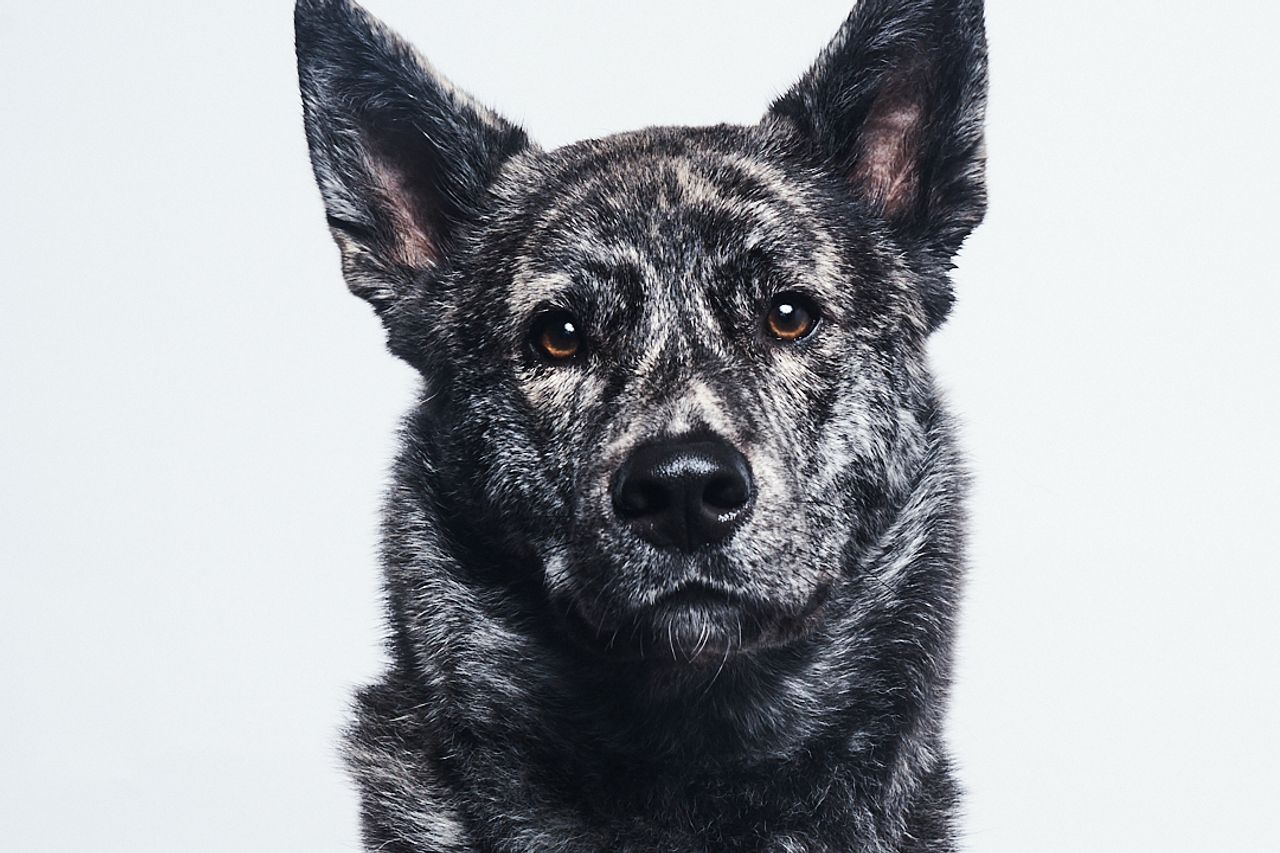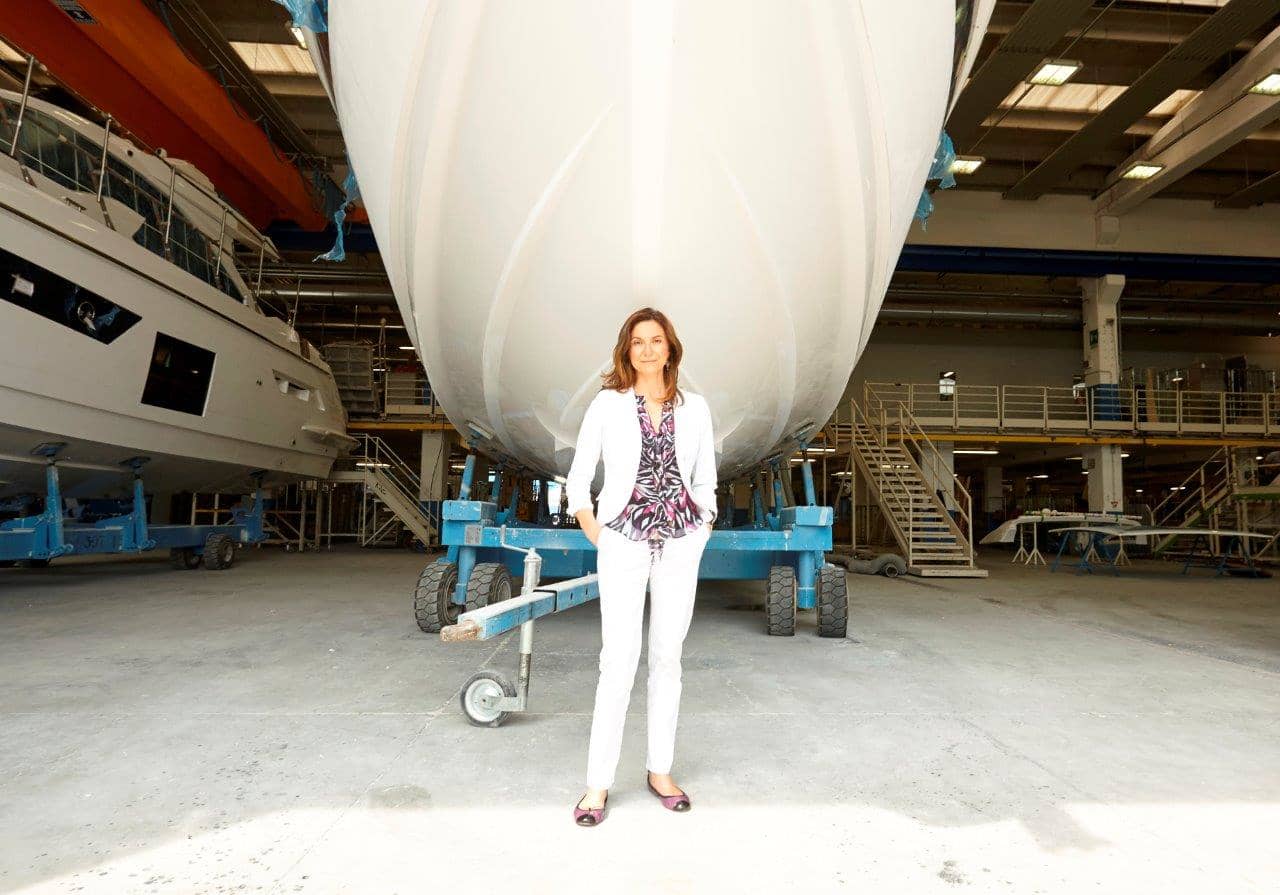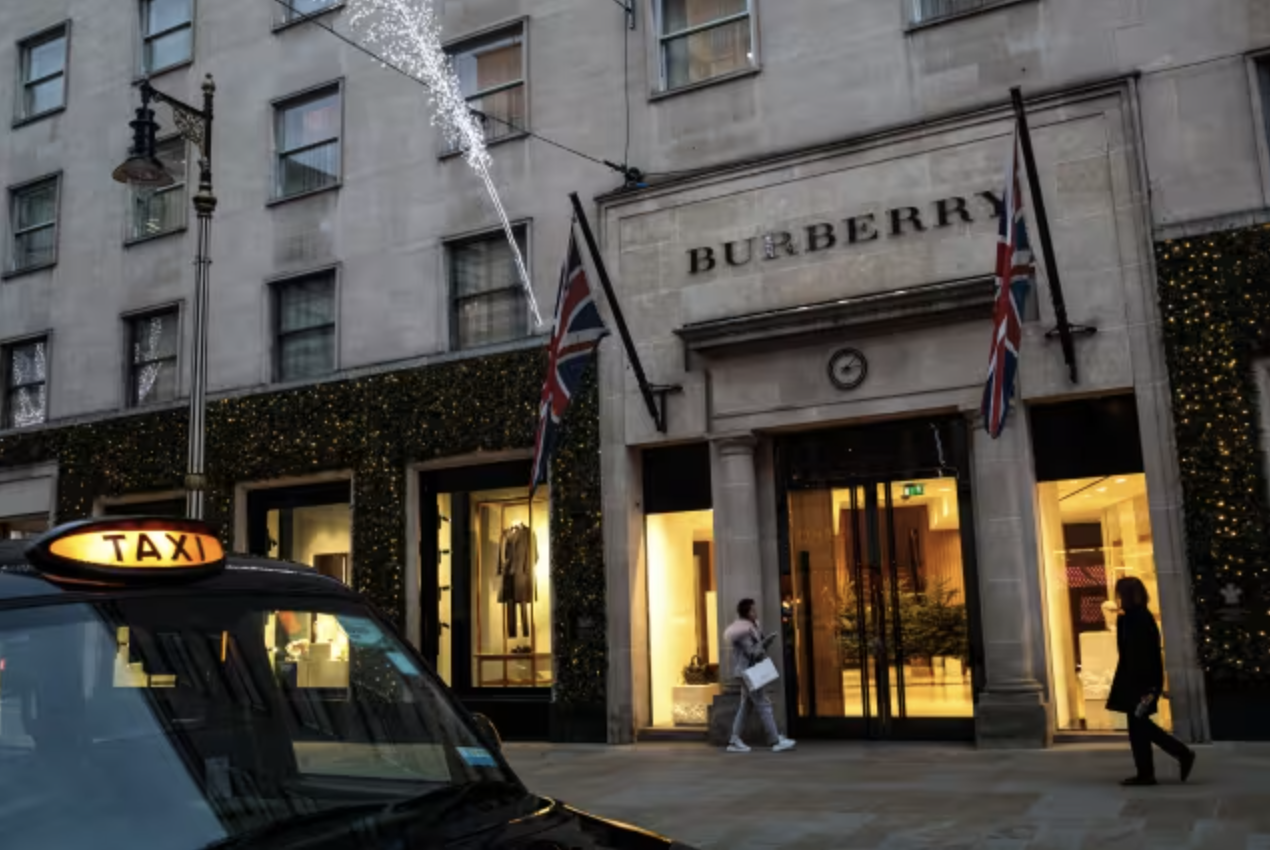Americans Can’t Stop Pampering Their Pets—Companies Want In
Firms that cater to humans adapt to the animal world. Ultrasounds for tree frogs. Telehealth for Stella.
Attention, CEOs: If not enough people are using your product, maybe animals will.
“Have you seen the numbers? They’re staggering,” said Jenna Mutch, a vice president at portable-ultrasound maker Butterfly Network Inc., referring to the rush of Americans who have brought home pets since the pandemic began. About 23 million households did, according to the American Society for the Prevention of Cruelty to Animals.
Spending to pamper them is one of a few areas of the economy managing to defy inflation and avoid a post-lockdown pullback.
As a result, some companies that normally cater to humans are high-tailing it to pets.
Ms. Mutch heads commercial development for a newly created unit of her ultrasound company that sells scanners for animals.
Adapting human products for animals can be complicated. There’s the matter of animals’ size. Also, their shape.
Butterfly’s ultrasound machines can scan things ranging from as small as the reproductive organs of tree frogs to chonky mammals, including polar bears, according to Ms. Mutch. “We have to be very versatile,” she said.
Hilton Worldwide Holdings Inc. is adding hundreds of hotels where animals can stay the night. It offers virtual “pet expert teams” to address health and behaviour issues they might have while traveling, teaming with Mars Inc., the parent of veterinary operator VCA and Purina pet foods.
Snack-bar maker Clif Bar & Co. this summer started selling a line of jerky treats for dogs. Global food giant Mondelez International Inc. took over Clif in August. More pets and growing demand for all-natural dog food prompted the move, a spokeswoman said.
Petco Health & Wellness Co. gets dozens of proposals from companies looking to adapt their products to animals, said Chief Executive Ron Coughlin. Not all the ideas are fully baked. He passed on bringing acupuncturists to the company’s stores.
Although some consumers struggling with inflation are cutting back on nonessentials, they don’t seem to put pet stuff in that category. Spending on pet food was up more than 18% in the last year, and spending on supplies rose 8%, according to Jefferies Research Services.
Mr. Coughlin of Petco is confident the spending will continue as Americans become ever closer to their animals.
“If you look at 100 years ago, pets were in the wild. Forty years ago, they’re in our yard, and 20 years ago in the house,” he said. “Now they’re in the bed.”
Rebecca Goldberg, a physician assistant in Manhattan, has a mixed-breed rescue dog named Stella. When it comes to pampering dogs, Ms. Goldberg is middle of the pack. Hers sleeps on a dog bed, eats kibble as opposed to fresh or human-grade food, and enjoys regular treats.
But Stella, 5, also has a high-end, Carhartt-brand vest to keep her warm outdoors. And lately, Stella has become a remote patient for a veterinary telehealth company called Pawp.
Ms. Goldberg signed up for Pawp as part of a temporary deal offered by T-Mobile. She gets free telehealth services for a year and pays $14 a month to cover emergency visits.
The deal was attractive, she said, because Stella has a sensitive stomach and a propensity to eat things she shouldn’t, a combination that made for frequent vet visits. “Having a veterinary clinic in your pocket is amazing,” Ms. Goldberg said.
Pawp’s founder, Marc Atiyeh, is a veteran of a few industries, none of them animal-related. Before starting Pawp he worked in fintech, finance and mobile analytics.
“There is definitely a flock of players getting into this space,” he said. “You’re getting folks who are veterans of human healthcare or personal finance.”
Peggy Roe, who oversees customer experience and new ventures for Marriott International Inc., said the chain in 2021 started noticing more people asking animal-related questions as they sought vacation lodging—“people asking, ‘Are hotels pet friendly?’ ‘What size dog can I bring?’ ”
Seeing the queries, the company surveyed customers, and of around 300 respondents, 85% said they had pets and more than half planned to travel with them. And not just dogs. Customers expressed interest in traveling with cats, birds and even fish.
“We have hotels that accept all kinds of pets—they don’t discriminate,” Ms. Roe said.
She took Riley, her newly acquired golden retriever, on a road trip, stopping at Marriott properties along the way. There were some worries. How would the stay go over with other guests—and with Riley?
“There was that anxiety,” she said. “Is this going to be good for my dog? Are our other guests going to be upset? Is the staff going to be nice?”
She realised it wasn’t enough to simply provide options for people and their animals. Marriott had to ensure the comfort of both.
“There are the people who love pets, the people who love pets and don’t want to travel with them, and people who don’t want pets anywhere in their space,” she said.
Under a partnership with Petco, Marriott will highlight home-rental properties that are especially well-equipped for pets. Travellers can buy products such as dog beds and bowls from Petco and have them delivered.
“Inflation or not,” Ms. Roe said. “People aren’t going to leave their pets behind.”
 Copyright 2020, Dow Jones & Company, Inc. All Rights Reserved Worldwide. LEARN MORE
Copyright 2020, Dow Jones & Company, Inc. All Rights Reserved Worldwide. LEARN MORE
This stylish family home combines a classic palette and finishes with a flexible floorplan
Just 55 minutes from Sydney, make this your creative getaway located in the majestic Hawkesbury region.
As Paris makes its final preparations for the Olympic games, its residents are busy with their own—packing their suitcases, confirming their reservations, and getting out of town.
Worried about the hordes of crowds and overall chaos the Olympics could bring, Parisians are fleeing the city in droves and inundating resort cities around the country. Hotels and holiday rentals in some of France’s most popular vacation destinations—from the French Riviera in the south to the beaches of Normandy in the north—say they are expecting massive crowds this year in advance of the Olympics. The games will run from July 26-Aug. 1.
“It’s already a major holiday season for us, and beyond that, we have the Olympics,” says Stéphane Personeni, general manager of the Lily of the Valley hotel in Saint Tropez. “People began booking early this year.”
Personeni’s hotel typically has no issues filling its rooms each summer—by May of each year, the luxury hotel typically finds itself completely booked out for the months of July and August. But this year, the 53-room hotel began filling up for summer reservations in February.
“We told our regular guests that everything—hotels, apartments, villas—are going to be hard to find this summer,” Personeni says. His neighbours around Saint Tropez say they’re similarly booked up.
As of March, the online marketplace Gens de Confiance (“Trusted People”), saw a 50% increase in reservations from Parisians seeking vacation rentals outside the capital during the Olympics.
Already, August is a popular vacation time for the French. With a minimum of five weeks of vacation mandated by law, many decide to take the entire month off, renting out villas in beachside destinations for longer periods.
But beyond the typical August travel, the Olympics are having a real impact, says Bertille Marchal, a spokesperson for Gens de Confiance.
“We’ve seen nearly three times more reservations for the dates of the Olympics than the following two weeks,” Marchal says. “The increase is definitely linked to the Olympic Games.”

Getty Images
According to the site, the most sought-out vacation destinations are Morbihan and Loire-Atlantique, a seaside region in the northwest; le Var, a coastal area within the southeast of France along the Côte d’Azur; and the island of Corsica in the Mediterranean.
Meanwhile, the Olympics haven’t necessarily been a boon to foreign tourism in the country. Many tourists who might have otherwise come to France are avoiding it this year in favour of other European capitals. In Paris, demand for stays at high-end hotels has collapsed, with bookings down 50% in July compared to last year, according to UMIH Prestige, which represents hotels charging at least €800 ($865) a night for rooms.
Earlier this year, high-end restaurants and concierges said the Olympics might even be an opportunity to score a hard-get-seat at the city’s fine dining.
In the Occitanie region in southwest France, the overall number of reservations this summer hasn’t changed much from last year, says Vincent Gare, president of the regional tourism committee there.
“But looking further at the numbers, we do see an increase in the clientele coming from the Paris region,” Gare told Le Figaro, noting that the increase in reservations has fallen directly on the dates of the Olympic games.
Michel Barré, a retiree living in Paris’s Le Marais neighbourhood, is one of those opting for the beach rather than the opening ceremony. In January, he booked a stay in Normandy for two weeks.
“Even though it’s a major European capital, Paris is still a small city—it’s a massive effort to host all of these events,” Barré says. “The Olympics are going to be a mess.”
More than anything, he just wants some calm after an event-filled summer in Paris, which just before the Olympics experienced the drama of a snap election called by Macron.
“It’s been a hectic summer here,” he says.

AFP via Getty Images
Parisians—Barré included—feel that the city, by over-catering to its tourists, is driving out many residents.
Parts of the Seine—usually one of the most popular summertime hangout spots —have been closed off for weeks as the city installs bleachers and Olympics signage. In certain neighbourhoods, residents will need to scan a QR code with police to access their own apartments. And from the Olympics to Sept. 8, Paris is nearly doubling the price of transit tickets from €2.15 to €4 per ride.
The city’s clear willingness to capitalise on its tourists has motivated some residents to do the same. In March, the number of active Airbnb listings in Paris reached an all-time high as hosts rushed to list their apartments. Listings grew 40% from the same time last year, according to the company.
With their regular clients taking off, Parisian restaurants and merchants are complaining that business is down.
“Are there any Parisians left in Paris?” Alaine Fontaine, president of the restaurant industry association, told the radio station Franceinfo on Sunday. “For the last three weeks, there haven’t been any here.”
Still, for all the talk of those leaving, there are plenty who have decided to stick around.
Jay Swanson, an American expat and YouTuber, can’t imagine leaving during the Olympics—he secured his tickets to see ping pong and volleyball last year. He’s also less concerned about the crowds and road closures than others, having just put together a series of videos explaining how to navigate Paris during the games.
“It’s been 100 years since the Games came to Paris; when else will we get a chance to host the world like this?” Swanson says. “So many Parisians are leaving and tourism is down, so not only will it be quiet but the only people left will be here for a party.”
This stylish family home combines a classic palette and finishes with a flexible floorplan
Just 55 minutes from Sydney, make this your creative getaway located in the majestic Hawkesbury region.






















